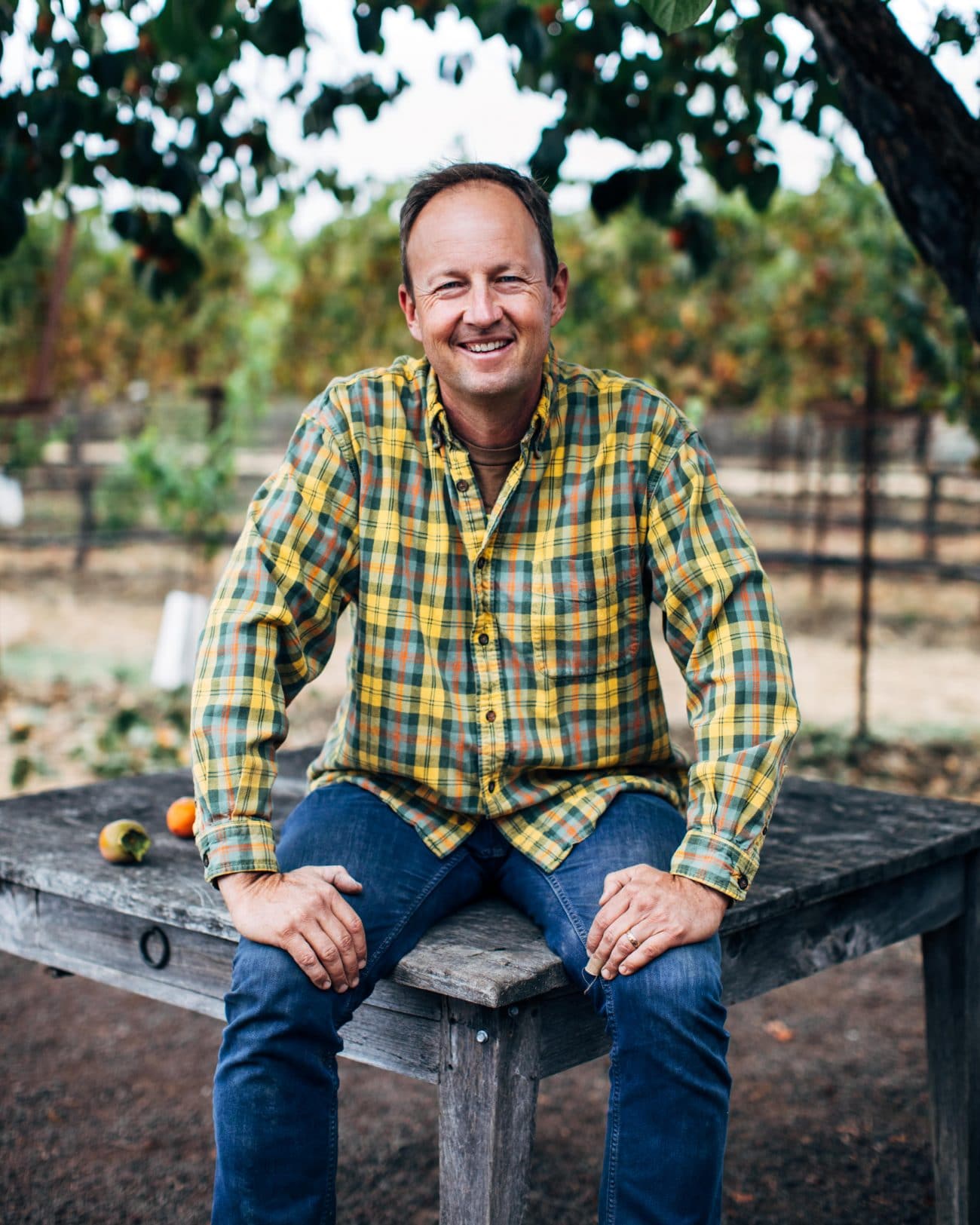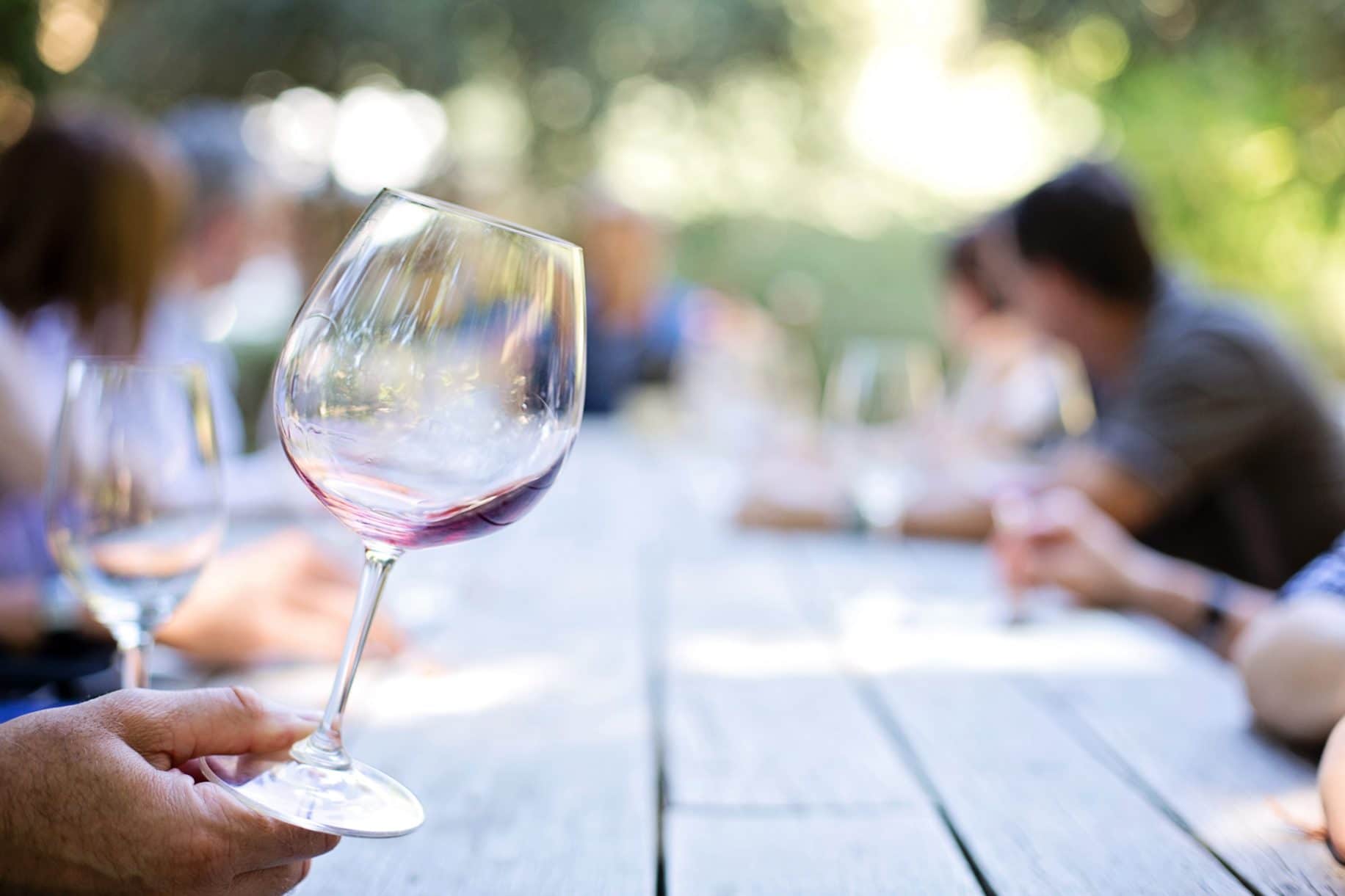Steve Matthiasson dreamt of farming his entire life. He became an obsessed gardener and cook while studying philosophy in college. In 1994, while back in grad school for horticulture after three years as a bike messenger/wannabe farmer, he found a job in vineyards and orchards working for a small sustainable agriculture consulting firm. In 1999 he co-authored the California manual on sustainable vineyard practices. In 2002 he started consulting on vineyard practices in Napa. He still loves the challenge of solving vineyard problems for others, but since 2003 the primary focus has been on his own family farming and winemaking. Steve is a life-long student of the craft of viticulture.
Why did you become a winemaker?
I have been fascinated with growing and preparing food since I was a little kid, starting with gardening in grade school, cooking in high school, and brewing beer in college, winemaking is the natural culmination of all of my interests: nature, culture, agriculture, craft and community.
If you weren’t a winemaker what would you be and why?
Some other craft of transformation of food. Possibly a cheesemaker, or maybe a distiller, or a producer of country hams, but a farmer no matter what.
What is your greatest strength as a winemaker?
I was lucky enough to be indoctrinated into the local food ethos early on, and that value system (organic farming, striving for purity of flavor derived from healthy soils, simple but precise preparation, in this case winemaking) guides me.
What is your biggest weakness as a winemaker?
Perfectionism, it can create internal conflict with my values of non-interventionalism, I often have to force myself to chill out.
What’s the one mistake you made in the cellar you would never repeat?
One mistake? There are so many. Fruit too ripe, fruit not ripe enough, too much oak, pressing too early, pressing too late, I make mistakes every year.
What is your proudest achievement?
In wine, it is helping to open up the wine market for lots of friends and colleagues who share a vision of balanced and interesting wines that complement food.
What was your scariest vintage to date?
2005, it was our third vintage, we were spending money but we hadn’t sold a bottle of wine yet, and for the third year in a row our friends in the industry were warning us that we would have a hard time selling our wine, that it wasn’t ripe enough. They were right, it was a tough go up until the past few years.
What is your favorite word?
My favorite word is probably compassion.
What is your most prized possession?
Our farm. We bought the land in 2006, the culmination of a lifetime of dreaming.
What’s the oddest thing about you?
I’m a winemaker with a very low physical tolerance for alcohol, which is part of why our wines are the way they are.
What song best sums you up?
What is your favorite memory?
Two favorite memories, my two sons being born.
Which of the five senses is your strongest?
Taste, no question. I live to eat and drink.
What is your biggest motivation?
To continue solidifying our farm and business so that we can push further on the sustainability journey.
Which bottle(s) of wine would choose to be stranded with on a deserted island?
A few for starters would be Arnot-Roberts Clary Ranch Syrah, Broc Cellars Cabernet franc, Domaine De La Cote Bloom’s Field, Ryme Vermentino, Forlorn Hope sparkling Reisling, Hirsch East Ridge Pinot noir, Cameron Clos Electrique.
What is the difference between a good and great wine?
I guess I would say that a good wine has all of the components and hits all of the marks, complete and balanced, and a great wine does all of that but also makes you think and question, surprises you, intrigues you, defies your understanding.
Name three individuals you would like to have dinner with?
First reaction is Masanobu Fukuoko (One Straw Revolution), Alice Waters, and Paul Draper. There are tons others if I start really thinking. Now that you mention it, I need to reach out to Alice and Paul, it’s not too late for them.
Who is your winemaking hero?
Stanko Radikon, so much courage for him to break convention the way that he did.
What does the concept of “balance” mean to you?
It means that the wine is fully flavored, deep, expressive, but has a light and refreshing quality at the same time (weight without heaviness), finishes cleanly, complements a meal, both in terms of the flavors, acidity, body, etc., but also complements a meal in that the alcohol level and extraction allows you to enjoy drinking the wine throughout the meal, not getting too full or woozy, or making you worry about paying for it the next morning. Balanced in one’s lifestyle, not just on the palate.
What is the one thing you want people to remember about your wine?
That it was delicious.
Best comment made about your wine?
It may be the comment that we often get from the spouse of a consumer who tells us that he/she doesn’t normally like wine, but loves ours. It validates everything we believe about the universal nature of balance, and of how anyone will respond to pure food grown in healthy soils.




